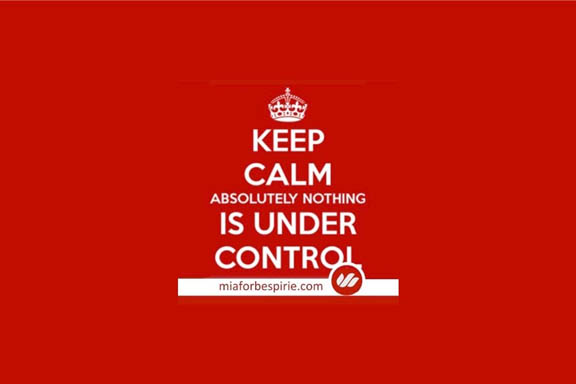
To me, the popularity of the war-time phrase ‘Keep Calm and Carry On’ seems out of place in one of the most prosperous and war-free societies in the world.
In our connected, fully wired 24-7 society, it can be hard to switch off. Our normal rhythms are easily out of sync and ‘stress’ has become an everyday word. As a lawyer, I remember hearing stories about how – before email – documents took days, if not weeks, to be passed around by hand, typed and re-typed with corrections handwritten in different colours – now it takes seconds to ping an email to everyone and complex contracts can be marked up overnight with tracked changes. The pace of modern life is sometimes astounding.
It’s easy to lose ourselves in the rush and pressures of modern life. Meditation is an antidote; a route to perspective and calm, to navigating the hectic traffic we experience in all areas of our lives. Meditation can change how we work, it can improve our health, and it can affect how we relate both to ourselves and to others. Beyond a mechanism for coping with stress, meditation can be a vehicle towards finding more meaning, purpose, depth and connection in our lives.
The mind is a surprising instrument. So powerful that science has yet to understand more than the basics of how it fully functions. But then, trying to understand ourselves has always been a tough, yet valuable pursuit.
Our minds (along with our bodies) have developed over millions of years of evolution to give us the best chances of survival in a sometimes hostile world. Our brain is rewarded with pleasure – with substances such as dopamine, serotonin and oxytocin – when we do something that evolution would suggest is survival-enhancing. And, of course, the other side of the coin is pain when our survival is threatened. When we sit in meditation and train our attention, we are acting against many of the reactionary tendencies that we have developed as a result of evolution.
Our evolutionary tendencies have helped us to survive so far, but some of them now lead us to overreact. We have, for example, developed a bias towards negativity, giving far more weight and attention to negative events and emotions than positive ones. And, particularly, under stress, we overestimate and ‘dial up’ the perceived ‘dangers’ around us. The evolutionary ‘down’ that we sometimes experience after the ‘high’ of being with a partner, is designed to draw us towards that person helping us to mate and procreate. But if that evolutionary tendency is too strong in us, our neediness may get activated and end up pushing the person away. Meditation helps us to temper the reactions that evolution has set in motion, so in that sense it is going against some of our evolutionary instincts. But maybe, that’s what’s needed for us to evolve even further.
Previously the purview of monks and lamas, meditation is now being used by the likes of Google, hedge fund managers and MBA students to boost their performance. Scientific research supports many health benefits of meditation mainly associated with stress reduction, and ability to focus. Cautiously promising research in its early stages even suggests that meditation may have some effect on a cellular level on patients in remission from cancer. Further evidence is needed to confirm that. So, maybe, in terms of health and focus, meditation is giving us an extra edge.
Meditation affects the quality of your attention and where you place it. And, as Stanford scholar and international meditation teacher B. Alan Wallace, PhD explains in his book The Attention Revolution, ‘Our perception of reality is tied closely to where we place our attention’. What we focus on shapes our experience and the things we ignore, pale into insignificance for us. In 2012, Usain Bolt says he won the 100 meters in 2012 by concentrating on his strengths (execution) rather than his weaknesses (his poor start). Meditation allows us to choose where we place our attention. That, in turn, gives us more control over how we shape our lives.
Meditation also helps us to navigate our emotions. Neuroscientists debate whether regions of the brain perform specific functions or whether a more interconnected view is more accurate. It is, however, established that the amygdala (emotional centres) play a huge role in the fear response. In order to deal with the fear-causing – at an evolutionary level read ‘life threatening’ – situation, we dissociate. We stop using the logical, decision-making functions of our brains. I interviewed Louann Brizendine, neuroscientist and author of bestseller, The Female Brain. She described this to me beautifully, using the analogy of a car with the clutch being pushed in. When we are in a state of stress and fear, the gears are unable to engage with the decision-making functions of our brains.
Of course, modern day stressful situations are not always related to mortal danger. And, in a non-life-threatening situation such as work, most of the decisions we make would probably benefit from some logical engagement! Awareness developed through meditation can help break the cycle and get you back there.
Meditation helps us to press ‘pause’ on our reactive patterns. It gives us perspective and choice. This allows us to be cool under fire. In this sense, it helps to blow the patterns that have been deeply ingrained in our minds out of the water, leaving us clearer, calmer and more available for genuine meaningful connection. Any takers?
